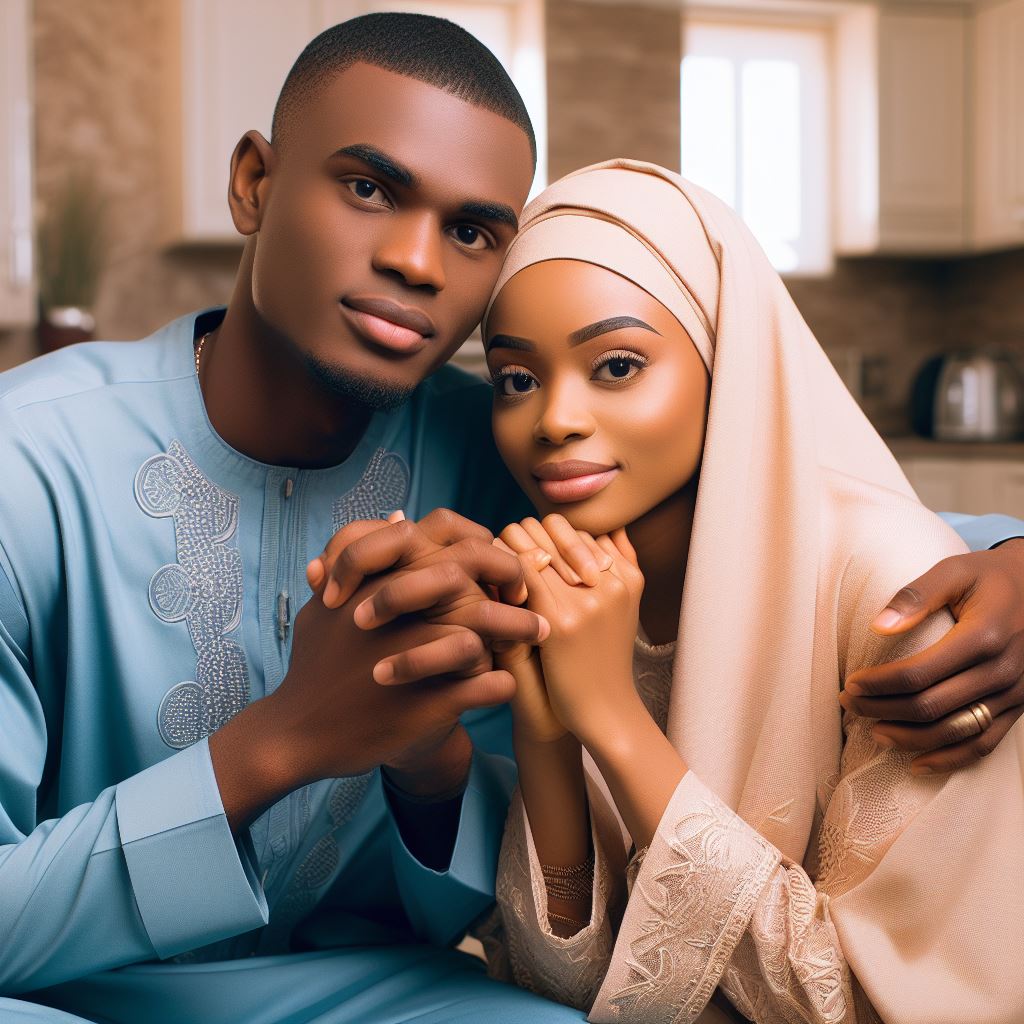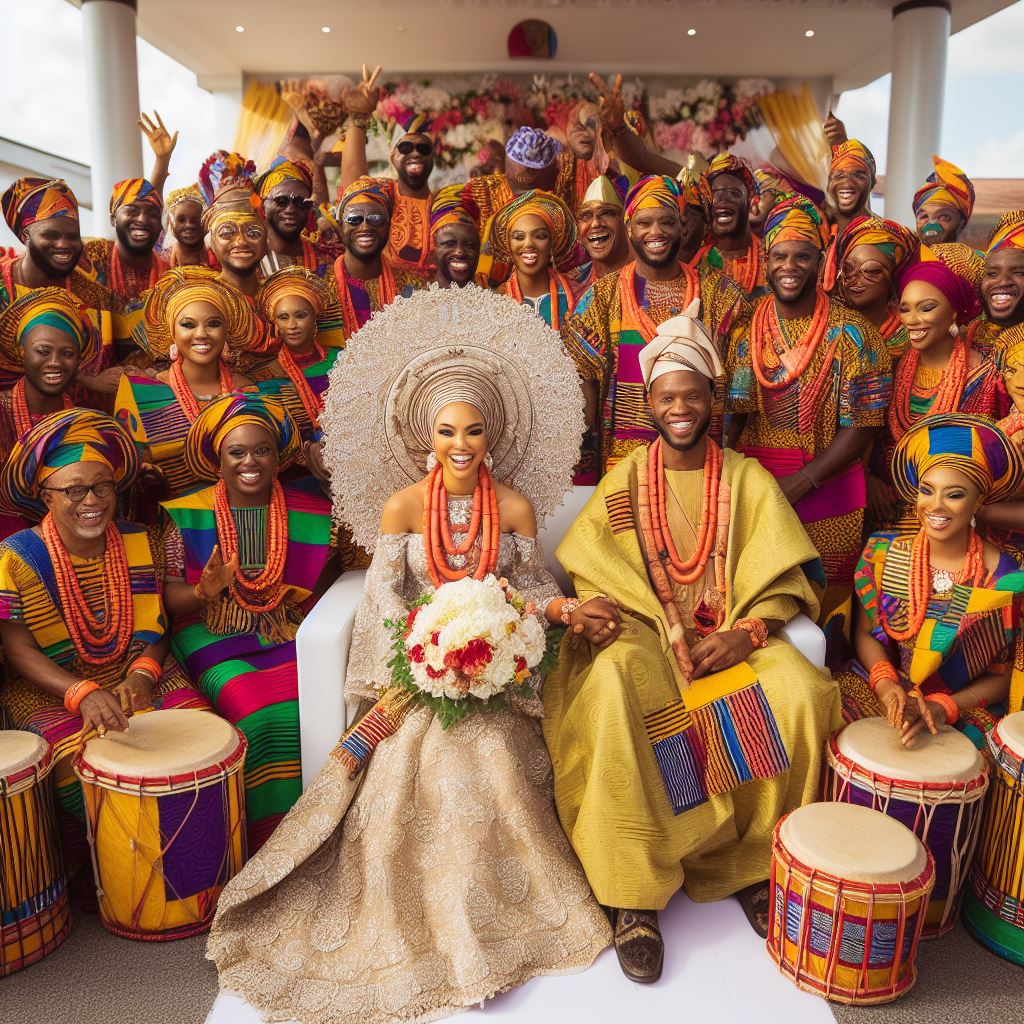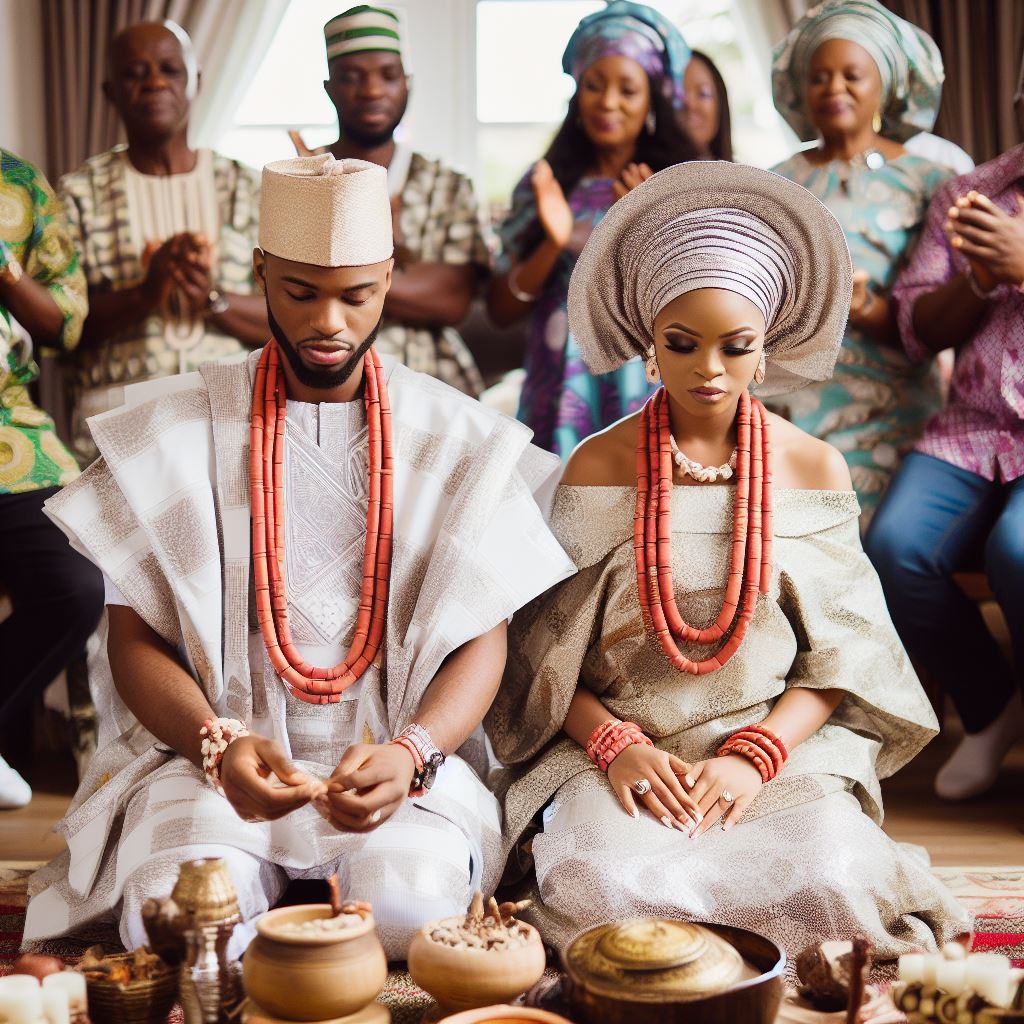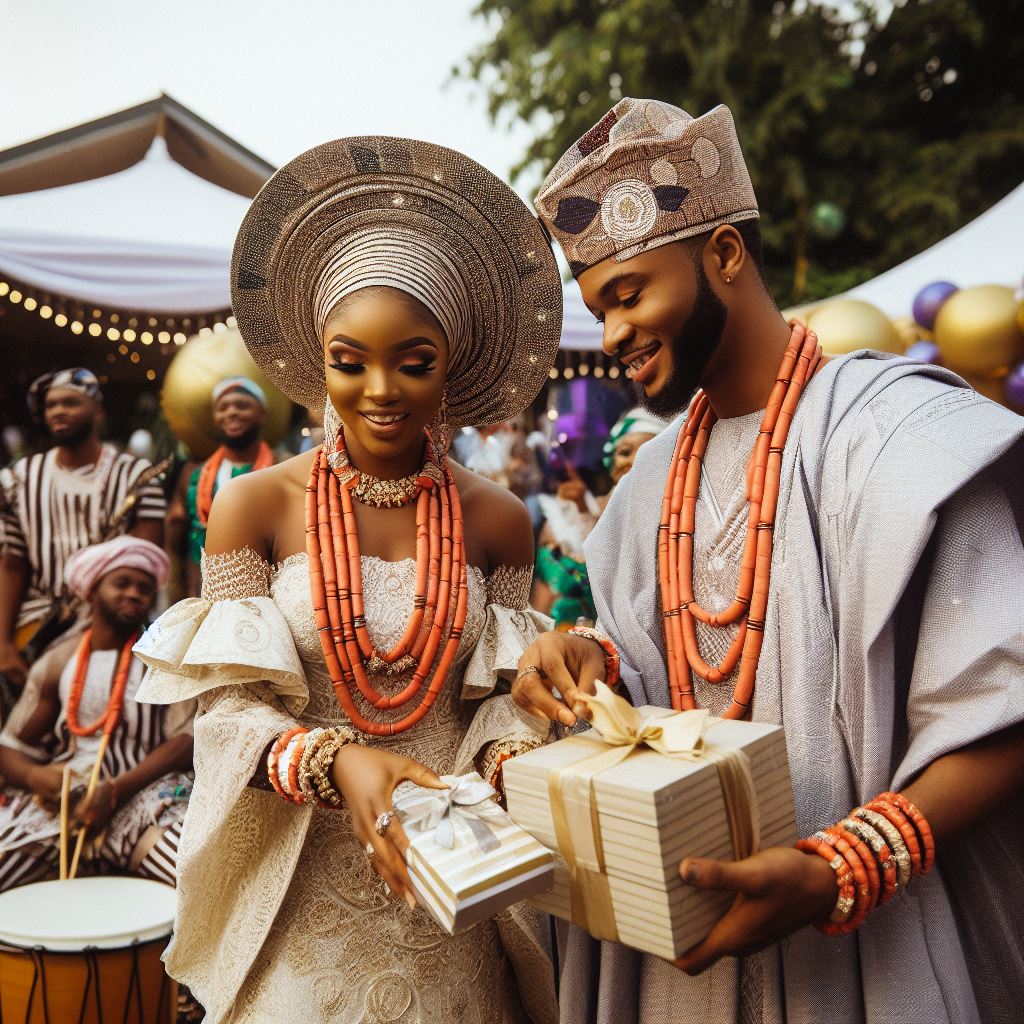Introduction
Marriage in Nigeria is a complex and diverse concept that varies among different religious and ethnic groups.
Christians, Muslims, and those who follow customary practices all have distinct definitions of marriage.
These definitions are not only significant for cultural understanding but also have legal implications.
Christians view marriage as a sacred covenant between a man and a woman, symbolizing Christ’s relationship with the Church.
It is a lifelong commitment based on love, trust, and mutual respect.
The couple seeks blessings from the church and often follows certain religious rituals during the ceremony.
Islamic marriages adhere to Islamic laws and principles.
In this view, a man provides, and a woman fulfills her roles as a wife and mother through contractual agreements.
Islamic marriages may include a dowry, a contract, and witnesses.
The Islamic faith permits polygamy under specific conditions.
Customary marriages, traditional to each ethnic group, involve various cultural practices and customs.
These marriages reflect the beliefs and values of the community.
They often include ceremonies, negotiations, and the exchange of gifts or dowries.
Customary marriages may differ in terms of rituals, requirements, and expectations based on the specific ethnic group involved.
Understanding the different definitions of marriage in Nigeria is not only essential to appreciate the richness of Nigerian culture but also to navigate the legal implications.
Different marriage definitions affect issues such as inheritance, child custody, and divorce proceedings.
Basically, Nigeria’s diverse religious and ethnic landscape brings forth various marriage definitions that shape individuals’ lives and society as a whole.
By delving into these definitions, we gain a deeper understanding of the cultural significance and legal nuances surrounding marriage in Nigeria.
Christian Marriage
Background information on Christianity in Nigeria
Christianity, as one of the major religions in Nigeria, plays a significant role in shaping the country’s cultural and social fabric.
With a large Christian population, the Christian marriage ceremony holds significant importance in Nigerian society.
Christian marriage ceremony
Role of the church and the officiant
In a Christian marriage, the church and the officiant, usually a pastor or priest, play crucial roles in the ceremony.
The wedding takes place in a church, symbolizing the sacred nature of the union.
The church provides a spiritual setting for the couple to exchange their vows and commit to a lifelong partnership.
Exchange of vows and rings
The exchange of vows and rings is a pivotal moment in the Christian marriage ceremony.
The couple publicly declares their love, commitment, and willingness to honor the marital covenant.
The rings serve as a visible symbol of their union, representing the never-ending circle of love and devotion.
Importance of marital commitment
Marital commitment is highly valued in Christian beliefs.
The couple’s commitment to each other is not only a personal pledge but also a sacred one.
They promise to love, support, and cherish one another, through both good times and challenging moments.
This commitment is regarded as the foundation for a successful and fulfilling marriage.
Christian view of marriage
Sacramental nature of marriage
In the Christian view of marriage, it is considered a sacrament and a sacred bond created by God.
Believers witness and experience God’s presence in marriage, strengthening the couple’s commitment to each other.
This spiritual aspect of marriage emphasizes the divine purpose and significance of this union.
Roles of husband and wife
The roles of husband and wife are addressed within the Christian view of marriage.
Husbands are expected to be the spiritual leaders of their families, providing love, guidance, and support.
Encourage wives to actively lead and nurture their families while caring for their husbands.
It is a partnership based on love, respect, and mutual understanding.
Divorce and remarriage within Christian beliefs
Divorce is a complex topic within Christian beliefs.
While Christian teachings generally discourage divorce, recognizing the sanctity of marriage, some circumstances may lead to separation.
Adultery and abuse are examples of severe breaches of the marital covenant that can justify divorce.
However, even in cases of divorce, Christian beliefs aim to promote forgiveness and healing.
Generally, the Christian marriage ceremony holds great significance for Nigerian couples.
It symbolizes their commitment to each other in the presence of God and the church community.
The sacramental nature of marriage, coupled with the roles and responsibilities of husband and wife, reflects the Christian view of a sacred partnership.
Christian beliefs prioritize forgiveness and healing in broken relationships, not encouraging divorce.
Read: God’s Plan for Marriage: Rooted in Biblical Scriptures
Islamic Marriage
Brief overview of Islam in Nigeria
Islam is one of the major religions in Nigeria, practiced by a significant portion of the population.
It was introduced to Nigeria in the 11th century and has since become deeply rooted in the country’s culture.
Muslims in Nigeria adhere to the teachings of the Prophet Muhammad and the Quran, considering them the ultimate guide for their lives.
Description of the Islamic marriage process
- The role of the Imam and witnesses
- In an Islamic marriage, an Imam, who is a religious leader, presides over the marriage ceremony.
- Two witnesses are required to validate the marriage contract.
- Negotiation of the bride’s dowry (Mahr)
- Before the marriage can take place, the groom negotiates and agrees upon the dowry to be paid to the bride.
- This dowry serves as the financial security for the bride in case of divorce or her husband’s death.
- Acceptance of the marriage proposal (Ijab)
- Once the dowry is agreed upon, the groom formally proposes to the bride and seeks her acceptance.
- Reading of the marriage contract (Nikah)
- The marriage contract, known as the Nikah, is read in the presence of the couple, witnesses, and the Imam.
- This contract outlines the rights and responsibilities of both parties in the marriage.
Islamic views on marriage
Significance of marriage in Islamic faith
- Islam highly values and actively encourages marriage to establish righteous and loving relationships.
- It is seen as a way to fulfill half of an individual’s religious obligations and to promote harmony in society.
Role of wife and husband in Islamic marriage
- The husband financially and physically supports his wife, while the wife manages the household and raises children.
- Their roles complement each other, fostering a partnership based on mutual respect and support.
Polygamy and divorce in Islamic culture
- Islam allows polygamy, but it comes with strict conditions, including the equal treatment of all wives.
- Couples are encouraged to seek reconciliation through counseling and steps before resorting to divorce as a last option.
Read: The Role of Husbands & Wives: Exploring Ephesians 5
Customary Marriage
Customary marriage in Nigerian cultures
This marriage is an integral part of Nigerian cultures, deeply rooted in tradition and societal values.
It is a union recognized by the customs and traditions of specific ethnic groups.
Overview of customary marriage practices
- Traditional rites and ceremonies: Customary marriages involve elaborate rituals that vary across different Nigerian cultures.
- Cultural significance and symbolism: These marriages hold immense cultural importance, symbolizing the unity of families and communities.
- Role of families and community: Customary marriages are not just the union of two individuals; they unite families and communities, fostering social cohesion.
The role of customary marriage in Nigerian society
- Preservation of cultural heritage: Customary marriage plays a vital role in preserving Nigeria’s rich cultural traditions and passing them on to future generations.
- Challenges and criticisms of customary marriage: While traditional practices have immense value, they also face criticism for potential gender inequalities and lack of legal protection.
- Comparison with modern legal requirements: Customary marriages often coexist with the legal system, raising questions about the interaction between traditional and modern frameworks.
Read: Navigating Marital Challenges: Guidance from the Bible
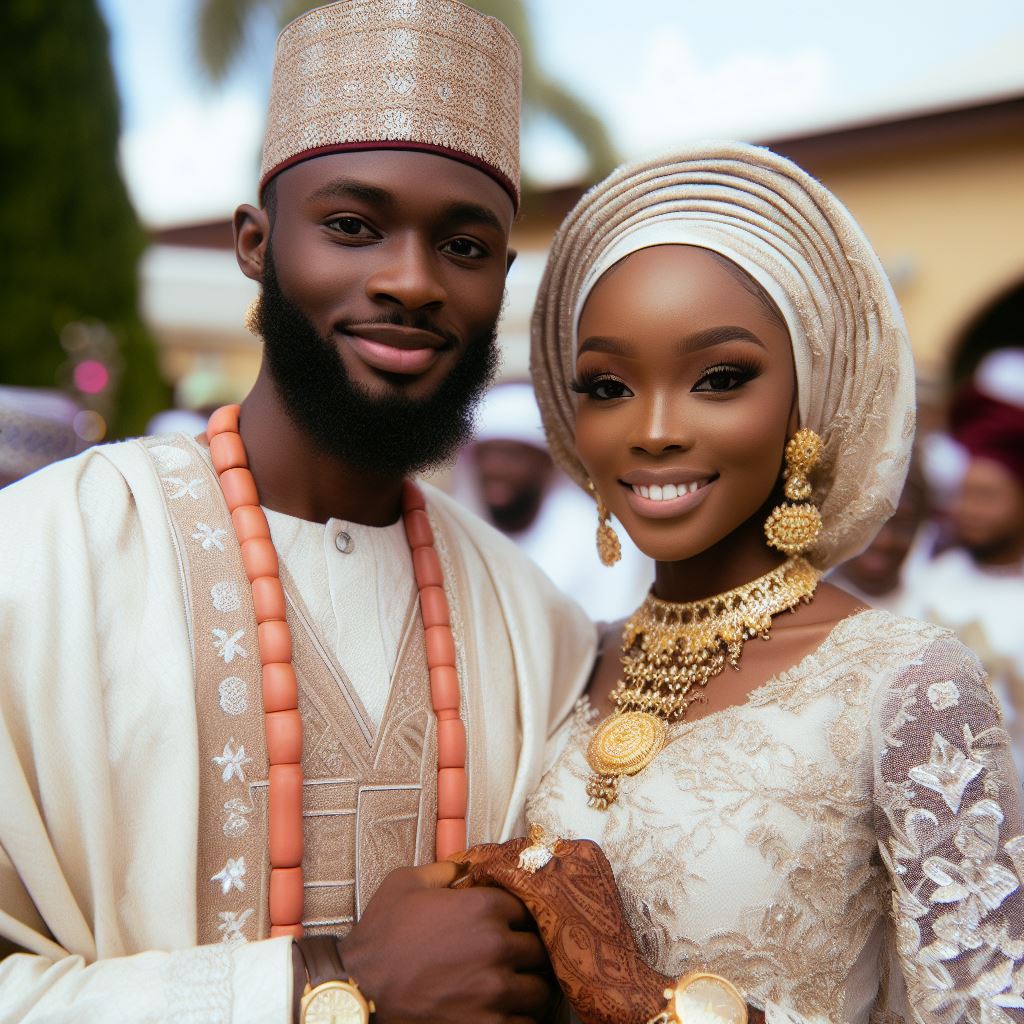
Comparison and Understanding
Marriage is a sacred institution that varies in definition and practice among different religious and cultural communities.
In Nigeria, three major marriage definitions prevail – Christian, Islamic, and customary marriages.
While each has its distinct rituals, practices, and cultural significance, it is essential to understand and respect these differences for a harmonious coexistence within society.
Comparison of the three marriage definitions (Christian, Islamic, and customary)
Similarities and differences in rituals and practices
Christian couples typically have a church ceremony with vows and rings. Islamic couples, however, have an Imam-conducted Nikah ceremony.
Customary marriages, on the other hand, involve traditional rites, rituals, and payment of dowry.
Despite these differences, all three marriage definitions signify the union of two individuals.
Cultural significance and influences
Christian marriages are often influenced by Western traditions, emphasizing love and companionship.
Islamic marriages, on the other hand, emphasize the importance of family and adherence to religious principles.
Customary marriages celebrate the cultural heritage and traditions of different ethnic groups in Nigeria.
Impact on gender roles and spousal relationships
Christian marriages typically designate the husband as the household’s leader, with the wife fulfilling a supportive role.
Islamic marriages emphasize the roles and responsibilities of the husband as the provider and the wife as the caregiver.
Customary marriages vary widely across different ethnic groups, but often emphasize the importance of mutual respect and cooperation between spouses.
Importance of understanding and respecting different marriage definitions in Nigeria
Promoting inclusivity and cultural understanding
By understanding different marriage definitions, individuals can appreciate the diversity within Nigerian society.
This promotes inclusivity and respect for cultural differences, fostering a sense of unity and harmony.
Navigating interfaith and intercultural marriages
Increased understanding of different marriage definitions is crucial for couples who come from different religious or cultural backgrounds.
It allows them to navigate their differences and find common ground that respects their individual beliefs and values.
Addressing legal and societal implications
Understanding different marriage definitions is essential for addressing legal and societal implications.
It helps policymakers create inclusive laws and regulations that protect the rights of individuals from diverse religious and cultural backgrounds.
Essentially, Nigeria is a country with diverse religious and cultural practices, including distinct marriage definitions.
Comparing Christian, Islamic, and customary marriages reveals both the similarities and differences in rituals, cultural influences, and gender roles.
Understanding and respecting these various marriage definitions are vital for fostering inclusivity, navigating interfaith and intercultural marriages, and addressing legal and societal implications.
By embracing these differences, Nigerians can create a society that celebrates diversity and cultural harmony.
Read: A Lifelong Bond: Inspirational Bible Verses on Marriage
Conclusion
Recap of the main points discussed
The blog post explored the definitions of marriage in Christian, Islamic, and customary traditions.
We examined the similarities and differences in these definitions, highlighting the importance of cultural understanding.
Restatement of the importance of understanding diverse marriage definitions in Nigeria
Understanding the diverse marriage definitions in Nigeria is crucial for promoting tolerance and respect for different cultural practices.
It enables us to appreciate the complexities of marriage in our society.
Closing thoughts
In embracing cultural diversity in marriages, we can foster unity and harmony within our communities.
Let us celebrate the richness of our traditions, respecting and valuing the various definitions of marriage that exist in Nigeria.
Together, we can build a more inclusive society.

